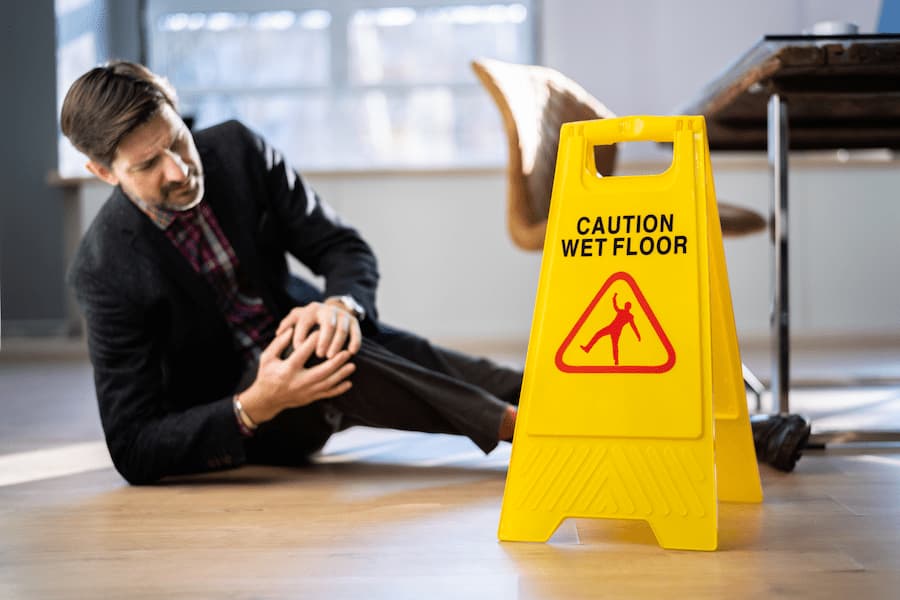Finding the Best Personal Injury Lawyer: A Comprehensive Guide

Personal injury cases can be complex and emotionally taxing. Whether you’ve been injured in a car accident, slip and fall, or another incident caused by someone else’s negligence, having the right personal injury lawyer on your side is crucial. This guide will help you understand how to find the best personal injury lawyer for your case and answer some common questions about the process.
Why You Need a Personal Injury Lawyer
A personal injury lawyer can help you navigate the legal complexities of your case, ensuring that you receive fair compensation for your injuries. They can handle negotiations with insurance companies, gather necessary evidence, and represent you in court if necessary. With their expertise, you can focus on recovery while they handle the legal aspects.
Steps to Finding the Best Personal Injury Lawyer
- Research and Referrals Start by asking for referrals from friends, family, or colleagues who have had positive experiences with personal injury lawyers. Additionally, conduct online research to find highly-rated lawyers in your area. Look for lawyers who specialize in personal injury law and have a strong track record.
- Check Qualifications and Experience Ensure the lawyer you choose is licensed to practice in your state and has experience handling cases similar to yours. Check their credentials, education, and any professional associations they belong to. Experience in personal injury law is crucial for understanding the nuances of these cases.
- Read Reviews and Testimonials Read online reviews and testimonials from past clients. This can give you insight into the lawyer’s reputation, communication style, and success rate. Look for consistent positive feedback and any red flags that might indicate potential issues.
- Schedule Consultations Most personal injury lawyers offer free initial consultations. Use this opportunity to meet with several lawyers, discuss your case, and gauge their approach and demeanor. Ask about their experience, success rate, and how they plan to handle your case.
- Evaluate Communication and Comfort Level Choose a lawyer who communicates clearly and makes you feel comfortable. They should be willing to answer your questions, explain legal terms in layman’s language, and keep you informed throughout the process. A good lawyer-client relationship is based on trust and clear communication.
- Discuss Fees and Payment Plans Personal injury lawyers typically work on a contingency fee basis, meaning they only get paid if you win your case. Discuss the fee structure during the consultation, including any potential additional costs. Make sure you understand the terms before signing any agreement.
Frequently Asked Questions
1. What should I bring to my initial consultation with a personal injury lawyer?
For your initial consultation, bring any relevant documents related to your case. This can include medical records, police reports, photographs of the accident scene and injuries, insurance policies, and any correspondence with insurance companies. Having these documents ready will help the lawyer evaluate your case more effectively and provide accurate advice.
2. How long do personal injury cases typically take to resolve?
The duration of a personal injury case can vary widely depending on the complexity of the case, the severity of injuries, and whether the case goes to trial. Some cases may be resolved within a few months through settlement negotiations, while others can take several years if they proceed to trial. Your lawyer should be able to provide a rough timeline based on their experience with similar cases.
3. What if I can’t afford a personal injury lawyer?
Most personal injury lawyers work on a contingency fee basis, meaning they only get paid if you win your case. This arrangement makes it possible for individuals who cannot afford upfront legal fees to still have access to legal representation. Discuss the contingency fee percentage and any additional costs with the lawyer during your consultation.
4. How much is my personal injury case worth?
The value of a personal injury case depends on various factors, including the severity of your injuries, medical expenses, lost wages, and pain and suffering. A personal injury lawyer can provide an estimate based on these factors and their experience with similar cases. Keep in mind that this is only an estimate, and actual compensation can vary.
5. What happens if my personal injury case goes to trial?
If your case goes to trial, your lawyer will represent you in court, presenting evidence and arguments to support your claim. The trial process includes selecting a jury, opening statements, witness testimonies, cross-examinations, and closing arguments. Your lawyer will handle all legal aspects, but you may need to provide testimony and be present for certain proceedings. Trials can be lengthy and unpredictable, but a skilled lawyer will work to achieve the best possible outcome for you.
Conclusion
Finding the best personal injury lawyer is a critical step in ensuring you receive the compensation you deserve for your injuries. By researching and comparing lawyers, checking qualifications and reviews, and scheduling consultations, you can make an informed decision. Remember to choose a lawyer who communicates effectively and makes you feel comfortable, as this will contribute to a successful lawyer-client relationship.
Personal injury cases can be challenging, but with the right legal representation, you can navigate the process more smoothly and focus on your recovery. Take the time to find a lawyer who meets your needs and has a proven track record of success in personal injury cases. This investment in careful selection can make a significant difference in the outcome of your case.





